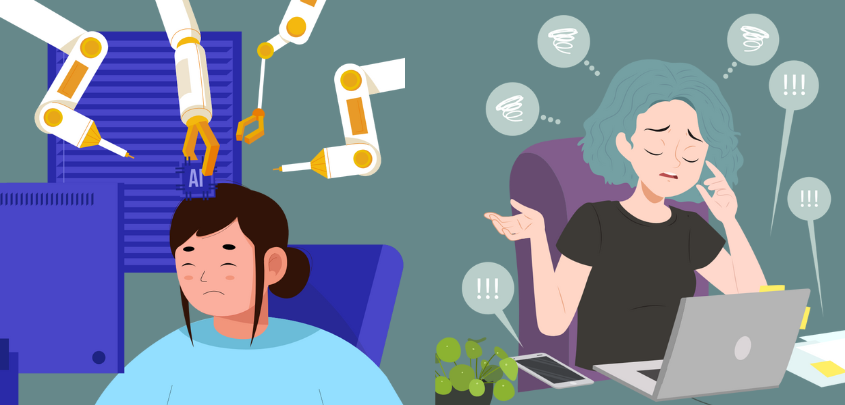
21, Apr, 2025
Is It Just a Habit — or an Addiction?
5 Subtle Signs Your Teen May Be Crossing the Line With AI Tools
AI-powered tools have become everyday companions for teens — from homework help to emotional support via chatbots. But how do you know if your child is just relying on AI or is dependent — maybe even addicted?
Here are 5 lesser-known signs that can help you spot the difference:
- Emotional Distress Without AI
Dependency: Teens may feel uneasy when AI isn’t available but can move on.
Addiction: Irritability, anxiety, or even panic when the chatbot or tool is inaccessible.
📌 Why it matters: This emotional reaction shows AI is no longer just a support tool — it’s become a coping mechanism.
- Losing Control Over Usage
Dependency: Your teen wants to limit usage and sometimes succeeds.
Addiction: They continue using AI despite knowing it’s affecting sleep, academics, or real relationships.
📌 Why it matters: Addiction involves loss of self-regulation — even when consequences are visible.
- Neglecting Daily Responsibilities
Dependency: Occasional distractions, but life is still on track.
Addiction: Missed homework, skipped meals, less interest in hobbies — AI becomes central.
📌 Why it matters: When tech starts replacing life tasks, it’s more than just a digital interest.
- AI Replacing Real People
Dependency: Teens may talk to chatbots for fun or curiosity.
Addiction: Bots become their go-to for emotional support, replacing conversations with parents, friends, or mentors.
📌 Why it matters: Teens need emotional mirroring from humans to develop healthy coping skills.
- Relationship Breakdown
Dependency: Social life may be impacted, but relationships remain intact.
Addiction: AI becomes a comfort zone; isolation from family and peers increases.
📌 Why it matters: If AI feels safer than real people, it’s time to intervene.
💡 What Can You Do?
- Talk — not judge.
- Set screen boundaries together.
- Encourage real-world social connections.
- Monitor—not spy on—AI app usage.
- And most importantly, model balanced tech habits.
🛑 Remember: Digital addiction doesn’t happen overnight. It starts subtly, often masked as “learning” or “coping.” The earlier we catch it, the easier it is to reverse.
